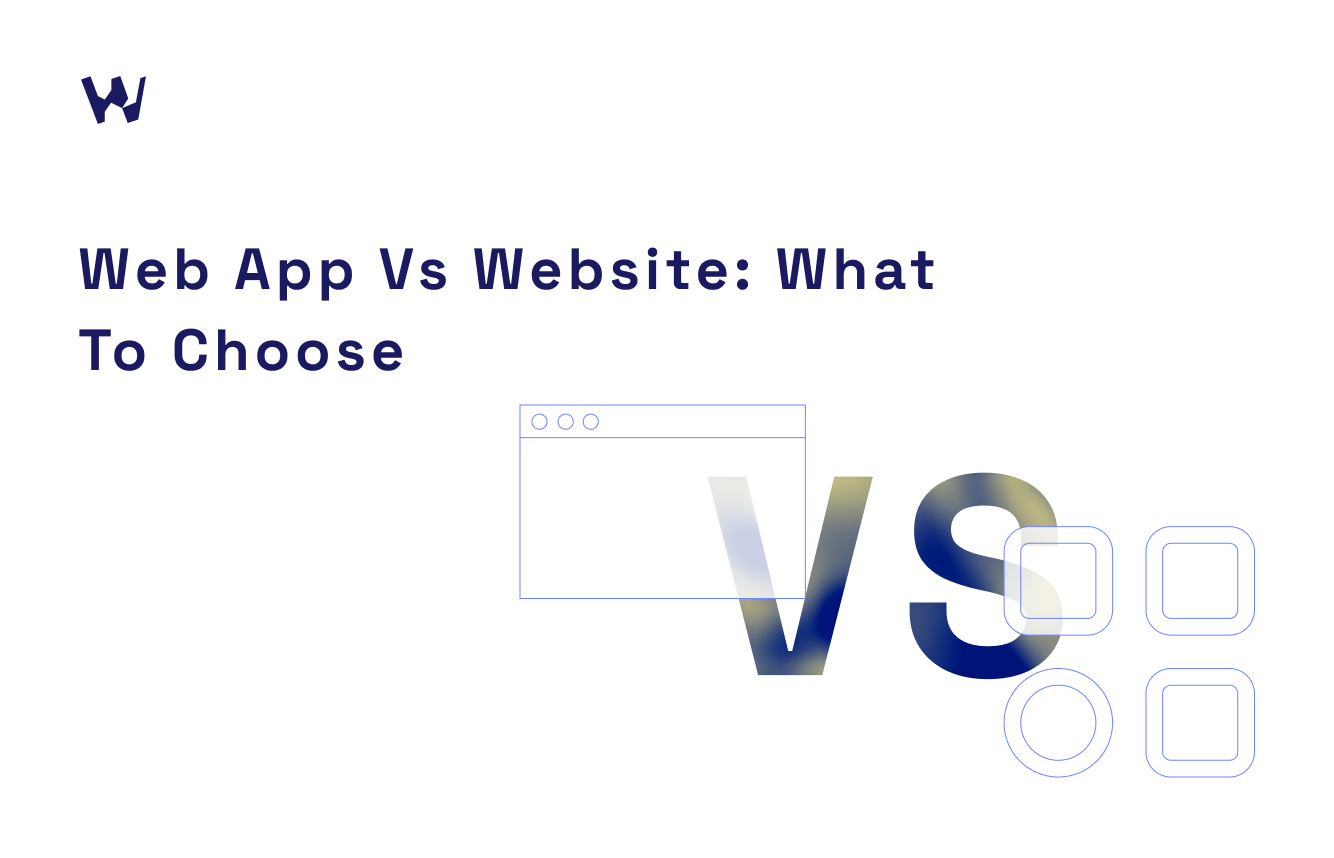Web App vs Website: Which One Is Better For Your Business

In today's digital era, the line between a web app and a website can sometimes blur. The statistics show that 71% of businesses established their online presence. But many businesses still wonder which option will better serve their purposes.
To make an informed decision, let's delve into the web app vs website debate, discussing their differences and weighing their pros and cons.
The main difference between website and web application
Before diving into the details, it's essential to understand the fundamental difference between a website and a web application.
Website
1. Purpose
Websites are primarily designed to present information. They act as a digital brochure or business card for an organization, entity, or individual.
2. Interaction Level
Typically, websites have a lower level of interactivity. For example, a user might navigate from one page to another, read articles, or view pictures, but the site primarily dictates the flow of information.
3. Content Origin
The content on most websites is set by its creators. While dynamic websites can pull content from databases (like articles or product listings), the user doesn't significantly affect or alter the content.
4. Development
Websites, especially static ones, can be created using basic HTML, CSS, and JavaScript. Dynamic websites, however, might utilize server-side scripting languages like PHP or Ruby to fetch content from a database.
Web Application (Web App)
1. Purpose
Web applications are designed for interaction and task completion. They're tools users employ to perform specific functions. For instance, when you use a word processor online, you're utilizing a web app.
2. Interaction Level
Web apps thrive on interactivity. They often revolve around user input to function. For example, in an online banking system, users input account details, and transaction amounts, or even schedule payments.
3. Content Origin
The content in a web application is largely determined by the user's actions. Think about a social media platform: the posts, comments, and profiles you see are largely generated by users themselves.
4. Development
Web apps are generally more complex to develop than websites. They require both front-end (interface) and back-end (server, database) development skills. Technologies like Node.js, Django, and Ruby on Rails, among others, are often used.
Web apps also tend to prioritize security more due to the sensitive nature of user interactions and data storage.
5. Continuous Engagement
Web apps are designed for users to spend a significant amount of time on them, completing tasks, interacting with data, or engaging with other users. This is different from most websites, where the objective might be to get the user to a specific piece of information quickly.
6. Updates
Web apps often require more frequent updates to enhance features, patch bugs, or refine user experiences. These updates might be seamless for the end-user, especially with the rise of progressive web apps.
See more about the technologies Webmil uses to build dynamic and responsive websites and web apps.
Website pros and cons
Pros:
- Simplicity: Websites, especially static ones, are relatively simple to create and maintain.
- Cost: Usually, they're more affordable than developing complex web apps.
- SEO Advantages: Websites, especially content-rich ones, can have better search engine optimization (SEO) opportunities.
- Informational: Excellent for businesses that only need to showcase information without interactive features.
Cons:
- Limited Interactivity: Websites don't offer the same level of interactivity or functionality as web apps.
- Static Content: If not regularly updated, content can become stale or outdated.
Web app pros and cons
Pros:
- Interactivity: Web apps allow for extensive user engagement, offering dynamic content and features based on user input.
- Customization: Can be tailored to specific business needs or user preferences.
- Scalability: With proper design, web apps can handle large numbers of users and data.
- Business Operations: Web apps can integrate with other systems and streamline various business processes.
Cons:
- Development Cost: Typically higher than that of simple websites due to complexity.
- Maintenance: Requires regular updates and maintenance to fix bugs, improve features, and ensure security.
Web application vs website: What better suits your business?
In essence, while there's a crossover in the modern digital landscape (with many websites incorporating web app features and vice versa), the distinction lies in the primary purpose and level of interactivity. A website's main goal is to inform, while a web application's objective is to interact and execute specific tasks.
If your primary aim is to provide information about your company, products, or services without requiring much interactivity, a website might be the best fit. It's also a great starting point for businesses that are new to the online space.
On the other hand, if your business operations require user interaction, data processing, or other complex tasks to be performed online, a web app would be more suitable. Businesses aiming to offer services online or have user accounts and data handling often lean towards web apps.
Bottom line
The website vs web app debate isn't about which is universally better, but rather which is better suited for your specific business needs. It's crucial to assess your business goals, target audience, and desired functionality before making a decision.
Contact us now to make a thoughtful decision of which type of online presence is perfect for your business.